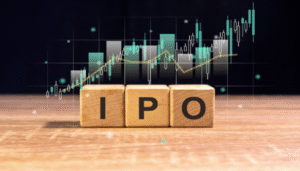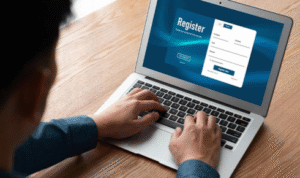The Impact of Inflation on Your Finances
Inflation is a phenomenon that affects economies around the world, and it has a significant impact on individuals’ personal finances. Understanding how inflation works and its effects on your money is crucial for making informed financial decisions. In this article, we will delve into the concept of inflation, its causes, and how it influences your financial well-being.
What Is Inflation?
Inflation is the increase in the general price level of goods and services in an economy over a period of time. In other words, it means that, on average, prices are rising, and the purchasing power of money is declining. Inflation is typically expressed as an annual percentage, such as 2%, representing the average price increase over a year.
Causes of Inflation
Inflation can have various causes, and economists classify it into different types based on its origin:
- Demand-Pull Inflation:
This occurs when the demand for goods and services exceeds their supply. As demand increases, businesses raise prices to meet the growing demand.
- Cost-Push Inflation:
Cost-push inflation happens when the cost of production increases, leading businesses to pass these higher costs on to consumers through higher prices.
- Built-In Inflation:
Built-in inflation, also known as wage-price inflation, is a cycle where businesses raise prices to cover increased labor costs, and workers demand higher wages to keep up with rising prices.
- Monetary Policy:
Central banks, through their monetary policies, can influence inflation. By adjusting interest rates and the money supply, they can either stimulate or control inflation.
- Fiscal Policy:
Government fiscal policies, such as changes in tax rates and government spending, can impact inflation by influencing demand in the economy.
The Effects of Inflation on Personal Finances
Inflation can have a range of effects on your personal finances:
- Reduced Purchasing Power:
Inflation erodes the purchasing power of your money. As prices rise, your money can buy less, which means you need more money to maintain the same standard of living.
- Savings Erosion:
Inflation affects the real value of your savings. If the interest you earn on savings is lower than the inflation rate, the purchasing power of your savings diminishes over time.
- Impact on Investments:
Inflation can erode the real returns on investments. Investments that don’t outpace inflation may result in a loss of purchasing power.
- Fixed-Income Challenges:
People with fixed incomes, such as retirees living on pensions or fixed annuities, may struggle to keep up with rising living costs.
- Increased Borrowing Costs:
Inflation can lead to higher interest rates, making borrowing more expensive. If you have variable-rate loans, your interest payments may increase.
- Uncertainty:
Inflation creates uncertainty in the economy, making it challenging to plan for future expenses and financial goals.
Managing Inflation’s Impact on Your Finances
While you can’t control inflation, you can take steps to mitigate its impact on your personal finances:
- Invest Wisely:
Consider investments that have the potential to outpace inflation, such as stocks, real estate, or commodities. Diversify your investment portfolio to spread risk.
- Keep an Eye on Interest Rates:
Monitor changes in interest rates, especially if you have variable-rate loans or savings accounts. Adjust your financial strategy accordingly.
- Budget for Inflation:
When creating a budget, factor in a reasonable rate of inflation to ensure your financial plans are realistic and sustainable.
- Save and Invest Regularly:
Consistently saving and investing can help your money grow over time, making it less susceptible to the eroding effects of inflation.
- Use Tax-Advantaged Accounts:
Consider utilizing tax-advantaged accounts, such as IRAs and 401(k)s, to benefit from tax breaks and potentially increase your investment returns.
- Consider TIPS:
Treasury Inflation-Protected Securities (TIPS) are government bonds that adjust for inflation, providing a guaranteed return that outpaces inflation.
- Review Fixed-Income Investments:
If you have fixed-income investments, assess their performance and consider diversifying into assets that have the potential for higher returns.
- Maintain an Emergency Fund:
An emergency fund can help you cover unexpected expenses without relying on high-interest debt. It’s a financial cushion against inflation’s impact.
- Control Debt:
Manage and reduce high-interest debt to avoid additional financial strain caused by rising interest rates.
- Plan for Retirement:
- When planning for retirement, consider the potential impact of inflation on your future expenses and income needs.
- Seek Professional Advice:
- Consult with financial advisors or planners to develop strategies for protecting your finances from inflation’s effects.
- Stay Informed:
- Stay informed about economic trends and government policies that can influence inflation. Knowledge can help you make informed financial decisions.
Conclusion
Inflation is a natural part of the economic landscape, and its impact on your personal finances is something you should be prepared for. By understanding inflation’s causes and effects, investing wisely, and managing your finances strategically, you can protect your purchasing power and achieve financial stability, even in the face of rising prices. Financial planning, diversification, and staying informed are key to navigating the challenges posed by inflation.




